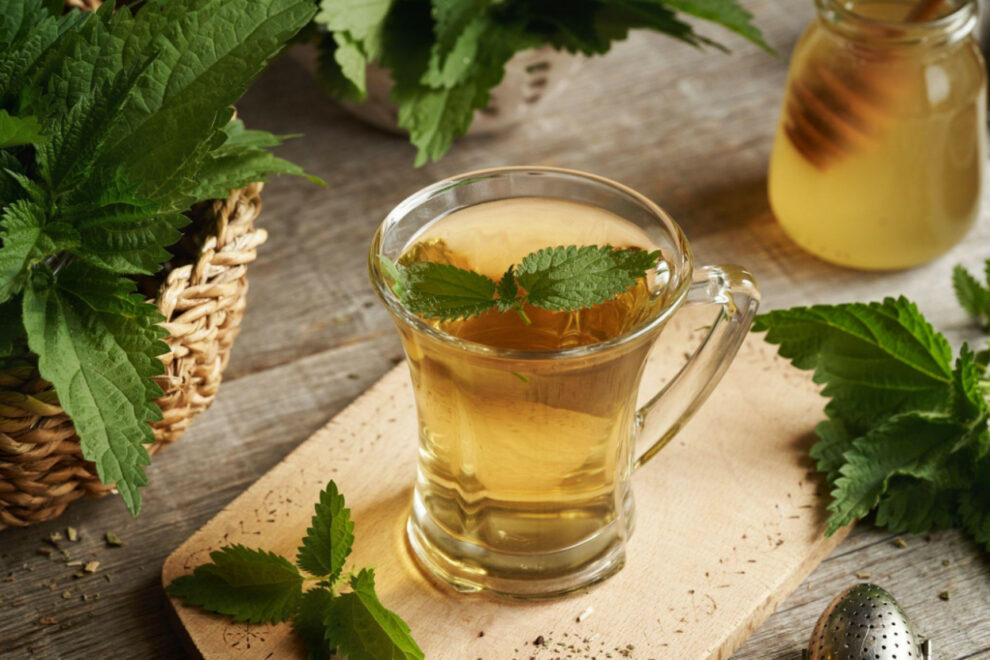While the potential benefits of incorporating tea into a detox diet are promising, it’s important to note that the scientific evidence on the subject is somewhat mixed. Some studies have found that certain types of tea, such as green tea, can indeed support detoxification and improve markers of overall health, while others have been less conclusive or have focused on specific compounds rather than the broader effects of tea consumption.
Understanding the Role of Tea in Detox Diets
Tea has long been touted as a natural and effective way to support the body’s natural detoxification processes. In the world of health and wellness, detox diets have become increasingly popular, with many individuals turning to tea as a key component of their cleansing regimen. But does tea truly have a meaningful role to play in detox diets, or is it simply a trendy addition?
To understand the relationship between tea and detox diets, it’s important to first explore the concept of detoxification. The human body is equipped with a complex system of organs, including the liver, kidneys, and digestive system, that work together to eliminate toxins and waste products from the body. Detox diets aim to support and enhance this natural process, often through the use of specific foods, supplements, and lifestyle changes.
Tea, with its rich array of plant-based compounds, has long been associated with various health benefits, including its potential to support the body’s natural detoxification mechanisms. For a deeper understanding of these benefits and how different types of tea can play a role in detox diets, you can explore more on teabeyond.io. The specific types of tea used in detox diets, as well as the potential benefits and limitations of incorporating tea into a detox regimen, will be explored in the following sections.
Types of Tea Used in Detox Diets
When it comes to detox diets, not all teas are created equal. Certain varieties of tea are more commonly used than others, each with its own unique set of properties and potential benefits.
Green tea is one of the most popular choices for a detox diet. It is rich in antioxidants, particularly catechins like epigallocatechin gallate (EGCG), which are believed to support liver function and aid in the elimination of toxins from the body.
Herbal teas, such as dandelion, milk thistle, and turmeric tea, are often incorporated into detox diets. These teas are thought to have specific properties that may support the body’s natural detoxification processes, such as promoting bile production, reducing inflammation, and supporting liver health.
Some detox diets feature specialized tea blends that combine various herbs, spices, and other plant-based ingredients. These blends are designed to target specific aspects of the detoxification process, such as improving digestive function, reducing bloating, or supporting the elimination of toxins.
While less commonly used in detox diets, oolong and black teas have also been studied for their potential benefits in supporting the body’s natural detoxification mechanisms, mainly due to their antioxidant content and potential effects on metabolism.
By understanding the unique properties of different tea varieties, individuals can make informed choices about which teas to incorporate into their detox diets to best support their health and wellness goals.
Benefits of Incorporating Tea in Detox Diets
The potential benefits of incorporating tea into a detox diet are multifaceted and can be attributed to the various plant-based compounds found in tea, as well as their potential effects on the body’s natural detoxification processes.
Antioxidant Support: Many types of tea, particularly green tea, are rich in antioxidants that can help neutralize harmful free radicals and support the body’s natural detoxification mechanisms. These antioxidants may also help reduce inflammation and support overall cellular health.
Liver Support: Certain teas, such as those made from herbs like dandelion and milk thistle, are believed to have specific properties that may support liver function and aid in the elimination of toxins from the body.
Improved Digestion: Some teas, like ginger or peppermint tea, may help improve digestive function, reduce bloating, and support the elimination of waste products from the body, which can be a crucial aspect of effective detoxification.
Hydration and Fluid Intake: Drinking tea, which is primarily composed of water, can contribute to overall hydration levels and support the body’s natural detoxification processes, which require adequate fluid intake.
Stress Reduction: The ritual of drinking tea, as well as the potential calming effects of certain tea varieties, may help reduce stress levels, which can be an important factor in supporting the body’s detoxification mechanisms.
It’s important to note that while tea may offer potential benefits for detox diets, it should not be viewed as a standalone solution. Effective detoxification requires a comprehensive approach that includes a balanced diet, regular exercise, stress management, and other lifestyle factors.
How to Effectively Use Tea in a Detox Diet
Incorporating tea into a detox diet requires a thoughtful and strategic approach to maximize its potential benefits. Here are some tips for effectively using tea in a detox regimen:
Choose the Right Tea Varieties: As mentioned earlier, different types of tea offer unique properties and potential benefits for detoxification. Carefully select the tea varieties that align with your specific health goals and the focus of your detox diet.
Timing and Frequency: Determine the optimal timing and frequency of tea consumption during your detox diet. Some experts recommend drinking tea throughout the day, while others suggest focusing on specific times, such as before meals or before bedtime.
Preparation and Consumption: Pay attention to the preparation and consumption of your tea. Brew the tea properly, using the appropriate water temperature and steeping time, to ensure you’re extracting the maximum beneficial compounds. Avoid adding sugar or other sweeteners, which can undermine the potential benefits of the tea.
Combine with Healthy Habits: Incorporate tea into a broader, holistic approach to detoxification. Pair tea consumption with a nutrient-dense diet, regular exercise, stress management techniques, and adequate hydration for a comprehensive detox regimen.
Consult with Professionals: If you have any underlying health conditions or are taking medications, it’s important to consult with a healthcare professional before starting a detox diet that involves the use of tea or other supplements. They can provide guidance on the appropriate tea varieties and dosages for your specific needs.
By following these guidelines, you can effectively incorporate tea into your detox diet and maximize its potential benefits for supporting your body’s natural detoxification processes.
Common Misconceptions About Tea and Detox Diets
Despite the growing popularity of tea in the context of detox diets, there are several misconceptions that are important to address:
Tea as a Standalone Detox Solution: While tea can be a valuable component of a detox diet, it should not be viewed as a standalone solution for detoxification. Effective detoxification requires a comprehensive approach that addresses multiple aspects of health and wellness.
Rapid or Extreme Detoxification: Some detox diets promote rapid or extreme detoxification, which can be harmful and even dangerous. Tea, in moderation, is generally safe, but it should not be used as a means to achieve extreme or unsustainable detoxification.
Detox Tea Cleansing: Some detox tea blends are marketed as “cleansing” or “flushing” the body of toxins. However, the scientific evidence for these claims is often limited, and such products may not be suitable for long-term use or for individuals with certain health conditions.
Detoxification Replacing Medical Treatment: Detox diets, including the use of tea, should not be used as a replacement for medical treatment or as a cure for serious health conditions. Individuals with underlying health concerns should always consult with a healthcare professional before embarking on a detox regimen.
Detox Teas for Weight Loss: While some detox teas may have a diuretic effect, leading to temporary weight loss, this is not a reliable or sustainable approach to weight management. Detox diets should not be solely focused on weight loss, as they should aim to support overall health and well-being.
By understanding and addressing these common misconceptions, individuals can make more informed decisions about the role of tea in their detox diets and avoid potential pitfalls or unrealistic expectations.
If you’re interested in incorporating tea into your detox diet, be sure to consult with a healthcare professional or a qualified nutrition expert to develop a personalized plan that aligns with your health goals and needs. They can provide guidance on the appropriate tea varieties, dosages, and the overall integration of tea into a comprehensive detox regimen.













